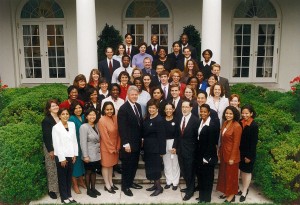
It was in the time of the father of the current Canadian Prime Minister, Pierre Elliott Trudeau in the 1970s and 1980s, that Multiculturalism as a concept for national development, was first adopted by a country. Canada became the leader and was later followed by Australia, as it moved away from the “White only Australia” policy, only after the Second World War. This is a new political reality where the public recognition of the importance of immigration and diversity, pushes against the forces of monoculturalism. Europe has been struggling with its adventures in Multiculturalism as its nation states evolved their own particular national and cultural homogeneity, after centuries of strife and war between the nation states. Now some like the Netherlands and Denmark are moving away from multiculturalism, as they regress to their core societies.
America was never intended to be multicultural as the founding fathers clearly laid out their preference for the new nation, “Providence has been pleased to give this one connected country to one united people — a people descended from the same ancestors, speaking the same language, professing the same religion, attached to the same principles of government, very similar in their manners and customs…” The myth of America as a welcomer of immigrants of diversity, with the statue of Liberty holding high its torch high, evolved much later, as it was forced to move away from its WASP origins. The philosophy in America has been to make a homogenous society through its schools and common beliefs, national holidays and traditions. It has not been a multicultural policy although many looking in from outside have mistaken its policies, in moving towards the celebration of multiple cultures.In fact it has tried to make a new homogenous American society.
In India its 1652 indigenous languages and the variety of culture, music, cuisine and religious diversity have evolved over millennium, into a more or less homogenous society, with its own unique form of Multiculturalism. The celebration of multiple festivals and religious celebrations in India, stands out in a complete contrast to its major neighbors like China, Pakistan, Afghanistan, Bangla Desh, Myanmar where the concept of a single culture nation state, seems paramount to their survival. As nation states evolve the cultural uniqueness of its people becomes a strength or weakness, as it can hold the nation back, or allows it to grow depending on its diversity and outlook. India’s strenght will be the diversity of its people as they retain their individual identities, and yet are able to work together to build, a greater nation state.
In my opinion it is the nations that can encourage diversity, which will prosper the most culturally and economically. The politics of inclusion brings out the best in people, as they work together to solve society’s problems. Each of us in our individualism and unique characteristics, bring strength of a greater whole, to any complex problem. The multiple thinking can allow people to tackle the age old problems, in a whole new way. It is not only compromise to a lesser solution, but a way to come up with a better solution, to solve the old problem. As we include people of all different ways of life, into our mainstream, and allow them to contribute to society as a whole, we will make a greater nation. We have to encourage each person of color, caste, race, sexual orientation, religion to participate in the rich tapestry of our society. Each one of us wants to have a better life, and as such will want to contribute, to a greater society. The tension of differences between us, can also help eventually increase, the harmony of potential solutions. Let us celebrate these political differences to make a greater human race.
To conclude we are all in this together and nature is a great multiplier of diversity and evolution as that is how survival works. If we can only allow this evolution to work in our favor, then we can all be successful and survive. If we do not, then we will only allow nature to overtake us, and send us into an evolutionary downward spiral. To become masters of our own destiny, we have to embrace everyone’s destiny, of all living creatures. Human beings are just a blip in the time space continuum, and we have a lot to learn from each other, to survive. In fact the more we interact with natures great variety, the more we will prosper. Diversity is our strength as the next great breakthrough for our survival will come from the outliers, and not the established norms. We have to move forward with multiculturalism as it is our only option.